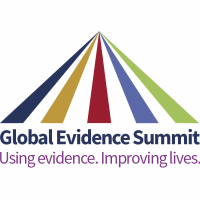
This year, two of our PhD students participating at the Global Evidence (GE) Summit in Cape Town, South Africa presented research from our Centre. The GE Summit is the first conference ever with a focus solely on evidence-based policy. The summit is aimed at everyone interested in evidence-based research, policy and practice and addressed serious health and social challenges using reliable research evidence. Cochrane, The Campbell Collaboration, Guidelines International Network, International Society for Evidence-based Health Care and Joanne Briggs Institute partnered up to create this unique event.
Our PhD students Tarang S. Voigt Larsen and Asger S. Paludan-Müller at the Nordic Cochrane Centre presented scientific posters at the event.
PhD student Asger S. Paludan-Müller:
“A review of contemporary clinical study protocols approved by research ethics committees in Denmark to assess if earlier trials were cited” presents the findings of our project examining a cohort of research protocols for randomised trials, which received ethical approval in Denmark between October 2012 and March 2013. We assessed to what degree the projects lived up to the basic requirements of using ethically acceptable comparators. We also looked into whether the scientific rationale was justified by referencing other previous similar trials or reviews of such trials. For many trials with commercial sponsors, the process of getting access to the necessary documents was extremely troublesome. Initially, we received either no protocol or heavily redacted versions of the protocols for 28 out of 77 research projects. All projects where disclosure was initially denied were either fully or partially commercially funded. When we finally obtained full access to all documents, it was clear that very few protocols made any mention of performing a literature search or doing a literature review (six out of 67, 9%). As a research project is supposed to be based on a thorough knowledge of the literature, we believe that performing a systematic review should be an ethical requirement. Additionally eight protocols (9%) used unethical comparators, and eight protocols failed to justify the scientific rationale for the study.
If you missed out on Asger's presentation, you can see the poster here. You are also welcome to contact Asger via email: asp@cochrane.dk, if you would like to know about his research.
PhD student Tarang S. Voigt-Larsen:
“Putting the puzzle together: accessing raw quality of life data from clinical study reports for use in evidence synthesis” is about our experience of identifying and piecing together data, for use in a systematic review of quality of life in trials of antidepressants using clinical study reports (CSRs). CSRs are summaries of clinical trial results prepared by industry for submission to regulatory authorities and contain a lot more information than what is available from journal articles. By using CSRs as source documents for our review, we had hoped to reduce the bias stemming from selective reporting in the published literature. However, we found a lot of selective reporting of results even within CSRs. For example, the quality of life instrument SF-36 was used in eight included trials, but two CSRs had no results at all while four had only partial results. This should be completely unacceptable”.
You can see Tarang's poster presentation here. If you would like to know more about Tarang’s research, you are welcome to contact her via email: ts@cochrane.dk
